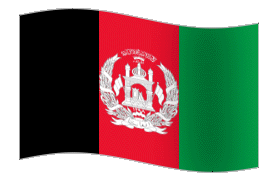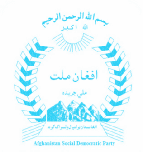AFGHAN-US STRATEGIC PARTNERSHIP
By: Ajmal Shams
The proposed Afghan US strategic partnership has been a hot topic and the subject
of serious political debate for quite a while both inside Afghanistan and abroad.
What makes it quite intriguing, are the geo-strategic location of Afghanistan, its
history of being a buffer between the Imperial Britain and Soviet Union, and one
of the main players of the Great-Game in the 19th century. The agreement is considered
to be the most important aspect of Afghan-US relationship. Inside Afghanistan, most
opinions on the subject have come from free-lance journalists with some on government
pay-roll, and some political analysts with limited knowledge of international relations.
Uncertainty surrounds as to what kind of partnership will ultimately evolve from
negotiations between Kabul and Washington. As for Afghanistan whether or not to go
for this agreement, the final decision lies with the Consultative Loya Jirga to be
convened in the next couple of months.
Regardless of the fact that the intellectual capital on Afghan side seems less capable
of adequately responding to various aspects of the proposed partnership, the Afghan
government has managed to convey its key demands to the US authorities after not
accepting the US-drafted version. According to some commentators, the Afghan government
is trying to extract from the US as much as it can now. Settlement of peace and security,
respecting independence of Afghanistan and not using Afghan soil as launching pad
for military operations into other nations, training and equipping of Afghan forces
with advanced weapons are some of the preconditions proposed by the Afghan government.
There are several probable scenarios to emerge. A long-term strategic treaty between
the two countries is one alternative. If concluded, the pact will bind the parties
to certain political, security and economic obligations with far-reaching economic
prospects for Afghanistan and strategic leverage for the US. However, the US seems
to be pushing for a broad agreement that may not carry the same force as a comprehensive
treaty. It is more likely the two sides end up agreeing on something in between.
What this strategic partnership will mean for our neighboring countries especially
Pakistan, Iran and China remains to be the key challenge. Beyond our immediate neighborhood,
concerns have been expressed by Russia and even India, albeit on friendly terms with
the US. The main concern is that the agreement might encompass permanent US military
bases in Afghanistan beyond 2014. The US has repeatedly denied this and tried to
mitigate such concerns by arguing it would instead opt for presence of coalition
forces beyond 2014 to remain on joint bases with Afghans for combating insurgency
and mentoring purposes. From Afghan side the message is clear- no launching operations
into other nations from Afghan soil. However, the US must share the burden of convincing
our neighbors that the partnership is not a security threat to them.
One should bear in mind that not everyone might by happy by the end of the day as
every such partnership comes at some cost to one or both parties when the benefits
outweigh the costs. Afghanistan has a long list of the lessons learned from its not-so-distant
past. The memories of Afghans are still fresh with the post-communist era of Mujahedeen
when the international community virtually abandoned Afghanistan-vulnerable to foreign
interference and at the mercy of our neighbors. Those years of internecine fighting
among various groups of Mujahedeen are some of the worst in our entire history. It
was in the aftermath of that full-fledged anarchy that the Taliban emerged. Thus
to forestall any repetition of that period, Afghans need to have a long-term strategic
agreement with the US. Such partnership is not only beneficial to Afghanistan but
also essential for its sustainable security, territorial integrity and economic growth.
Therefore, from Afghanistan stand-point, it is no longer a matter of choice but that
of necessity. An unstable, weak and politically fragile state like Afghanistan has
no option but to go for such strategic partnership for its supreme national interests
and survival as one nation.
Afghanistan is also not oblivious to the fact that in order to maintain security
within its borders, it needs to be at peace with itself and its neighbors. Afghan-US
strategic partnership should, therefore, become more of an agent of stability in
the region rather than a cause of discord and fear among nations.
The writer is President of the Afghanistan Social Democratic Party (well know as
Afghan Millat National Progressive Party)

